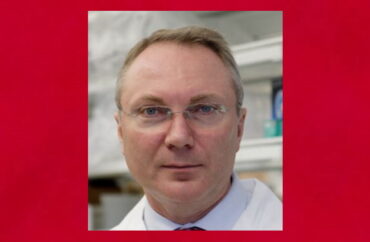
If anyone can spot a totalitarian regime, it’s Igor Efimov.
Professor Efimov, a prominent biomedical engineer at Northwestern University, grew up “in a small Siberian town built by GULAG prisoners to produce military grade plutonium and space satellites.”
He told The College Fix he believes campaigns within the American higher education system to push diversity, equity and inclusion philosophies and policies in STEM are frighteningly similar to ones he once worked under in the communist country.
The USSR had a “good STEM education system,” he said in a recent email interview, but added “it was poisoned by [M]arxist identity politics, which was primarily based on social class and ethnicity.”
“Top universities in the Soviet Union had an antisemitic policy limiting the number of Jewish students and gave preferences in admissions to working class students,” Efimov said.
“University curriculum was loaded with required classes on so-called ‘Scientific Communism’ or ‘Political Economy of Socialism’ at the expense of advanced physics, biology, chemistry, and mathematics courses.”
In fact, to even be admitted into a leading Soviet university, applicants had to be members of the Young Communist League, or Komsomol, he said.
Upon resigning from the Komsomol in the early 1980s at age of 18, Efimov wrote, he was harassed by authorities, subjected to illegal searches, and threatened with being drafted to the war in Afghanistan.
Other Soviet émigrées now working as scientists in the United States have made similar comparisons – the most notable being Anna Krylov, a chemistry professor at the University of Southern California.
“My everyday experiences as a chemistry professor at an American university in 2021 bring back memories from my school and university time in the USSR. Not good memories—more like Orwellian nightmares,” Krylov wrote in 2022.
Efimov said she’s right. The politicization of scientific funding today, with the Biden-Harris administration spending more than $2 billion on DEI-STEM projects, is “reminiscent of what I experienced in the Soviet Union,” he said.
“[P]oliticizing science funding undermines public trust in science, academic freedom, and the unbiased generation of knowledge,” Efimov told The Fix. “Without public support and without freedom of scientific exploration, there will be no new knowledge generation, which is required for technological leadership and security.”
Recent polling from the Pew Research Center shows public confidence in scientists declined during COVID and has yet to fully recover despite showing an increase since 2023.
National Academy of Sciences President Marcia McNutt in a September PNAS editorial warned of America’s impending loss of its international supremacy in science and lamented the lack of proficiency in math exhibited by American elementary school students.
Efimov said DEI is a major part of the problem. Making matters worse, he added, this fixation is detrimental to fundamental research — research needed to make discoveries on treatments for cancer, new drugs for obesity, implantable devices for heart diseases, and the AI revolution.
Efimov’s cardiovascular engineering laboratory focuses on developing therapies for heart diseases.
“We have no choice but to remove this political interference in scientific funding, which must be based on merit and free competition of scientific ideas,” he said.
“I hope the new administration will hire unbiased scientific leaders to remove hundreds of political regulations and ensure merit-based competition in science and technology, free of political interference,” he said.
The important thing is to not repeat the mistakes of the past, Efimov told The Fix.
“Previous studies, based on the history of the Soviet Union and Nazi Germany, which pursued extreme left and extreme right policy in their science and education systems, respectively, have shown that stifling [the] free competition of ideas in science slows down scientific enterprise and technological advances, [with] devastating effects on the economy and security,” he said.
For example: “Both the Soviet Union and Nazi Germany lost [their] most capable scientists due to their exodus in 1920-30s. Many of them ended up in the USA.”
One such scientist highlighted by Efimov was the renowned chemist Vladimir Ipatieff, who became a member of the Northwestern faculty after leaving Russia, and as Efimov stated, went on to develop a chemical process “to produce superior aviation fuel, which contributed to [the] victory of Great Britain during the battle for Britain and contributed to [the] air superiority of the Allied air forces over German Luftwaffe during WWII.”
Government efforts to “promote political activism and [a] single-sided political agenda” in science and education interfere with both, he said.
MORE: Biden-Harris admin’s NSF spent over $2 billion imposing DEI on scientific research: Senate report
Like The College Fix on Facebook / Follow us on Twitter






Please join the conversation about our stories on Facebook, Twitter, Instagram, Reddit, MeWe, Rumble, Gab, Minds and Gettr.